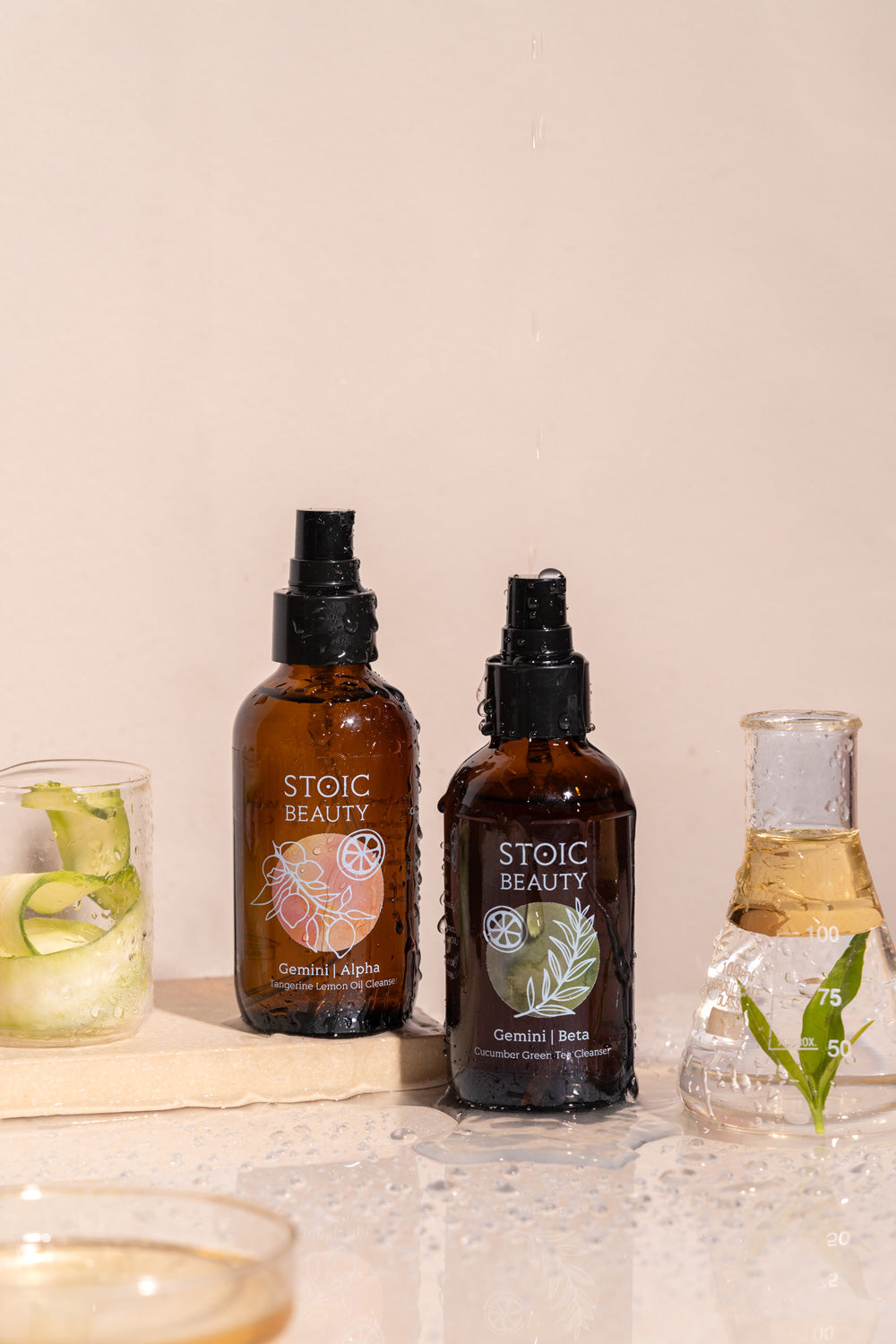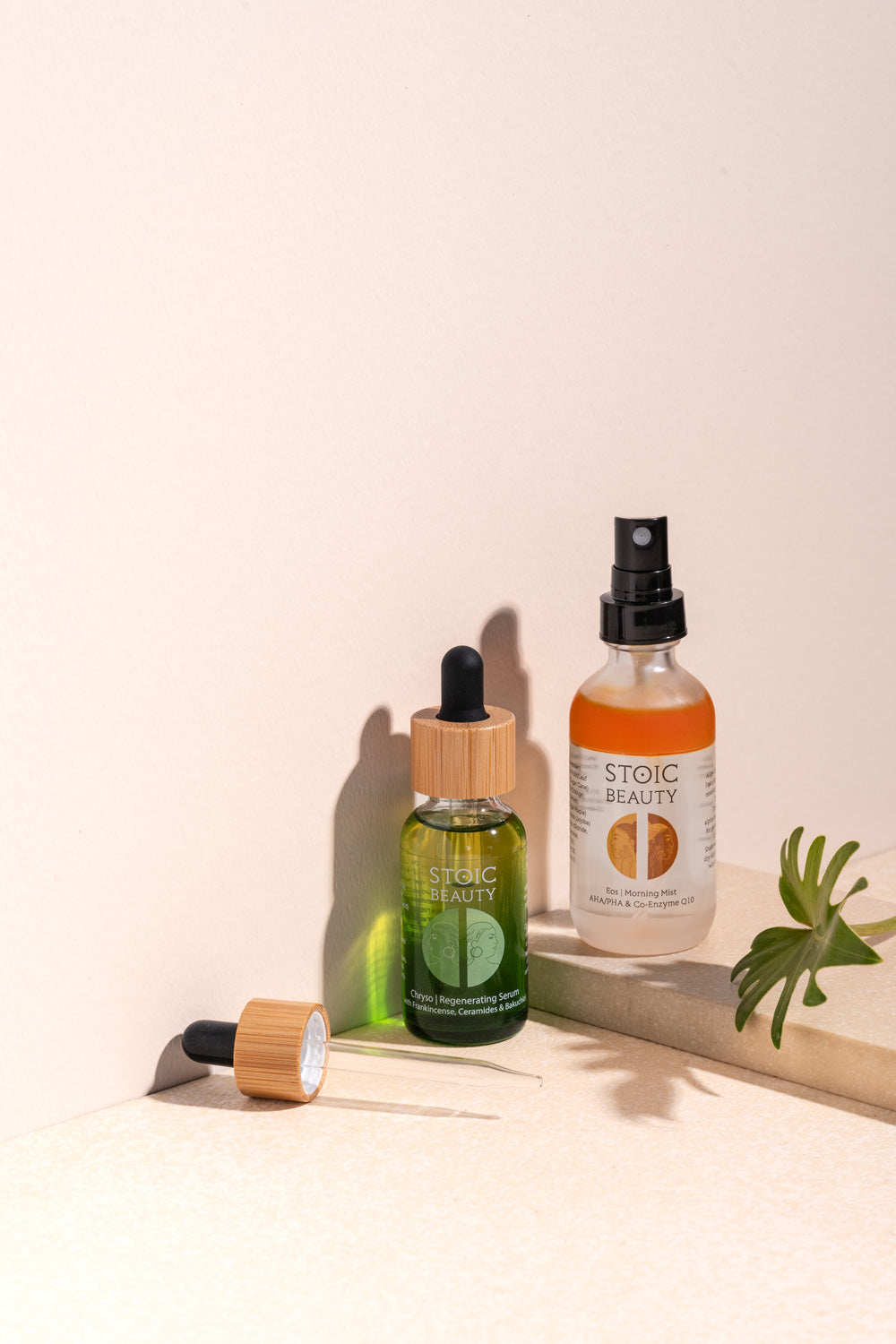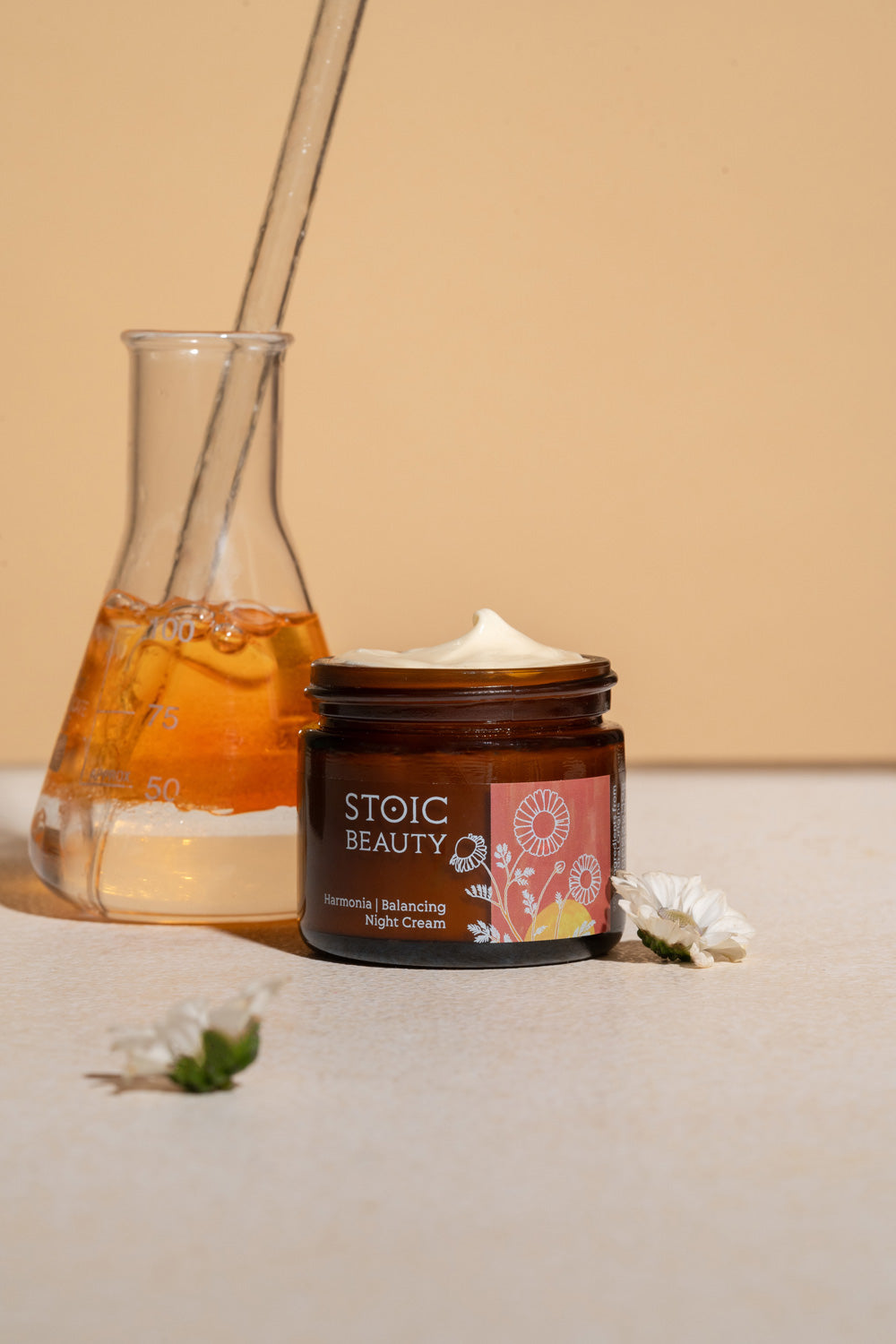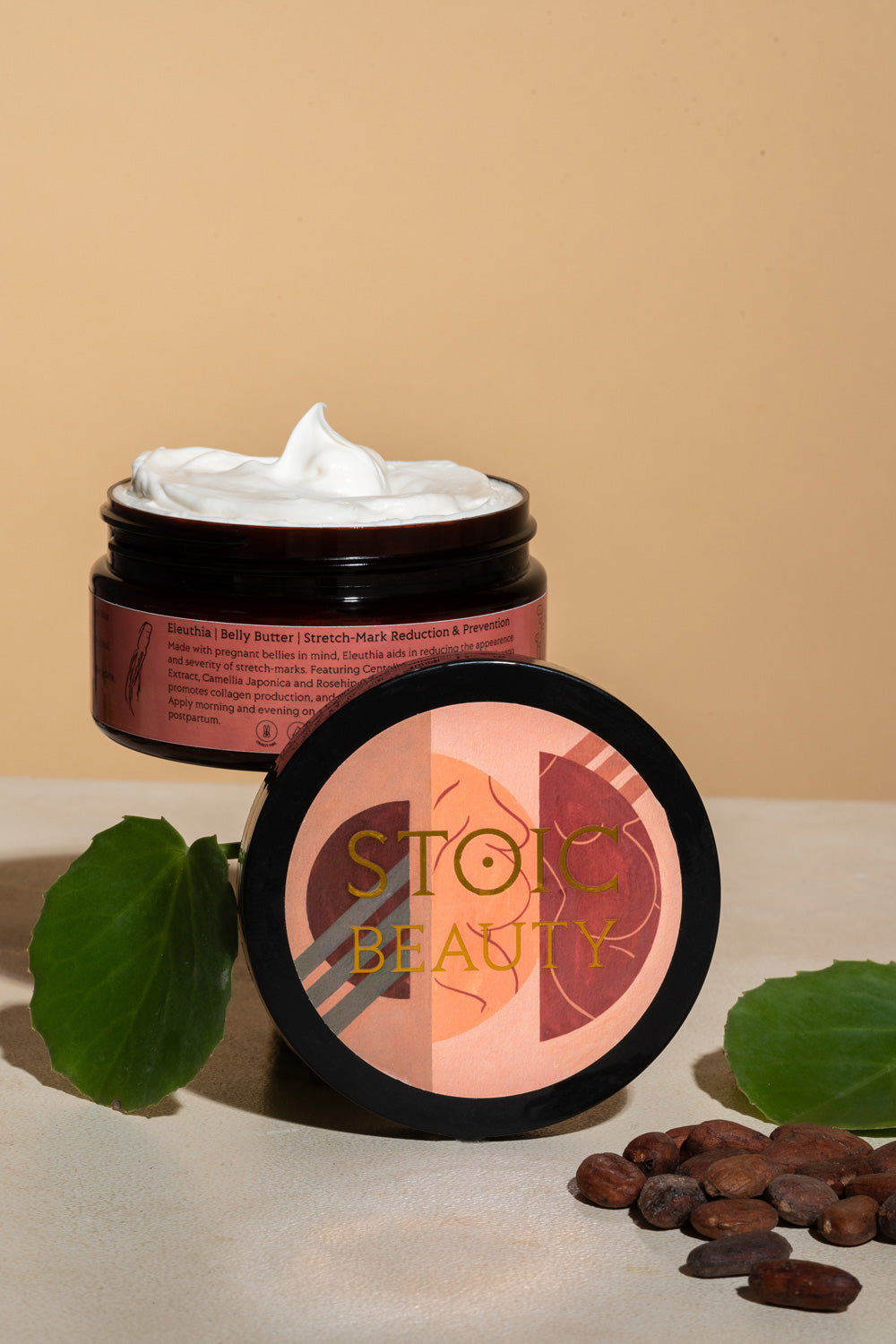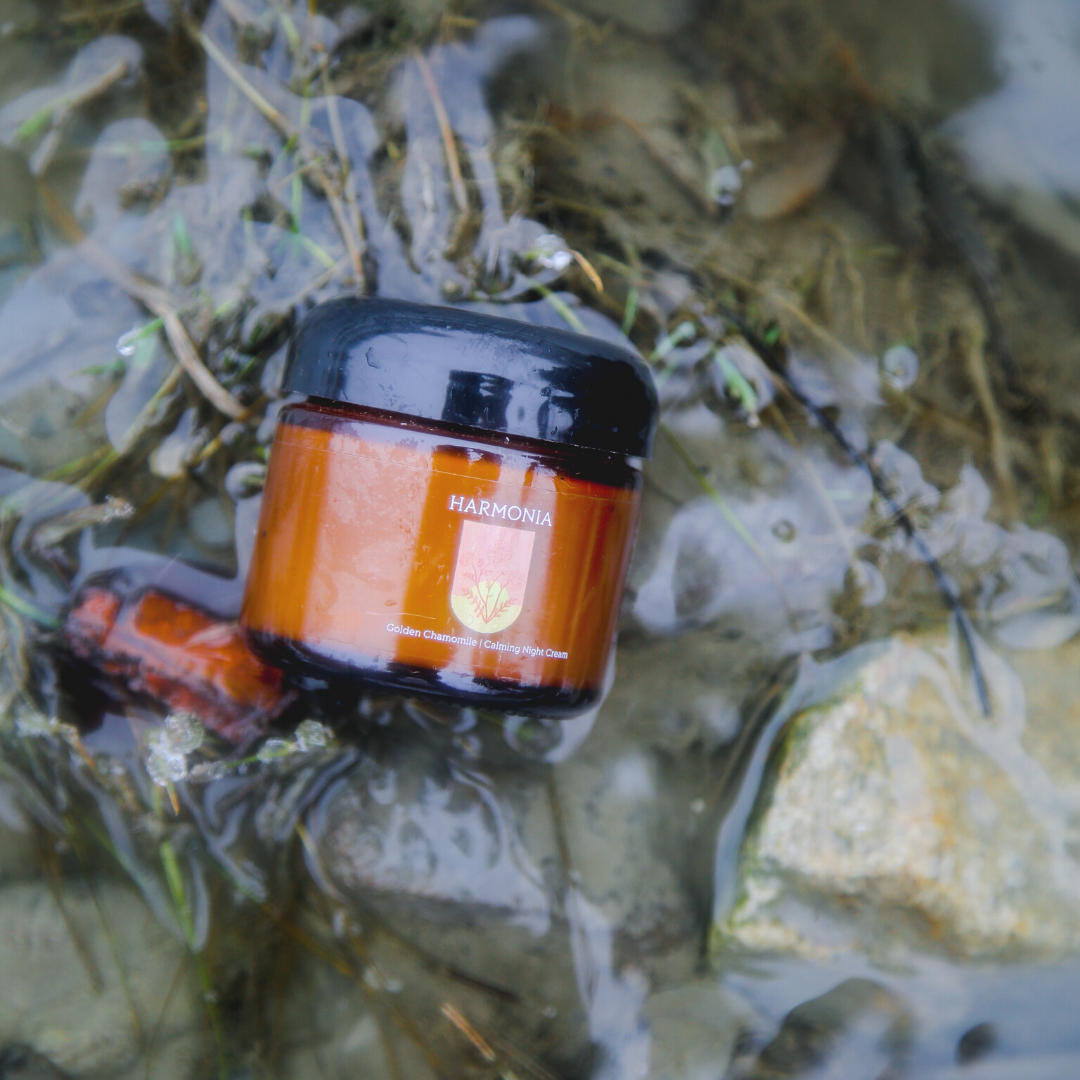
Stoic Beauties, our mission is not only to help you create skincare rituals that serve your wellness goals, but to do so with an environmental stewardship that echoes the ethics of those Greek Stoic philosophers. This means we prioritize our commitment to our communities, earth and waters. Our first and foremost goal is to focus on water-safe skincare.
What does water-safe skincare mean?
Water-safe skincare means that the onus of research is on us! This means we are keeping up with the latest studies to ensure we avoid ingredients that show ANY sign of being detrimental to water systems. We do this work, so you don't have to be an INCI-reading detective deciphering every ingredient!
That being said, it is worth noting: cosmetic ingredients' impact on marine life is not overseen by a governing body that provides recommendations or guidelines for producing water-safe products or products with lessened aquatic environmental impact. Organizations like the EPA (Environmental Protection Agency) and Cradle to Cradle (C2C) are leading the charge for environmental hazard detection, but neither have a specific aquatic safety focus.
While many ingredients are individually regulated by country or region, such as sunscreen products, differences in classification vary widely by country and often focus on human impact rather than aquatic life impact.
This means it is rather difficult to simply google "skincare that is safe for the ocean" -- there is not one organization accumulating, interpreting and representing the latest environmental science data.
So, we thought we'd give you a little primer of the research we adhere to when we formulate.
Here are 5 things you should know about ocean-safe, reef-safe cosmetic formulation.
1 - Fragrance
High levels of cosmetic ingredients are found in domestic sewage, mostly from synthetic fragrances, surfactants (things that make products foam), and filters (most notably UV filters).Take-away: Why not avoid synthetic fragrances in your skincare altogether!?
We know there is nothing like a good aromatic skincare routine, but why not opt for added-fragrance free? There are many botanical oils (not essential oils which can sensitize the skin) which offer sweet aromatics that care for our aquatic neighbours.
2- UV Filters
UV filters are known to bioaccumulate, and recent studies have shown their potential for estrogenic activity[1]. They also do not readily biodegrade and are removed from the water system over time through AD-sorption (becoming a solid film on top of water, as opposed to AB-sorption). These UV filters degrade over time with exposure to light.
Takeaway: If & when possible, use a physical filter sunscreen.
However, we know this is not always practical – physical filters, such as zinc oxide, can have too low an SPF, or leave an unattractive white cast. We recommend sticking with these natural sunscreens in your daily routine, and opting for more potent formulations for days with greater sun exposure.
Of all classified chemical UV filters, almost 50% are considered hazardous to aquatic life[2]Take-away: It is best to avoid the highest toxicity chemical UV filters.
This includes butyl methoxydibenzoylmethane (mouthful, right!?), ethylhexyl methoxycinnamate, ethylhexyl salicylate, and octocrylene.
3 - Silicones
Take-away: Let’s leave the silicones out of our skincare.
We all love our products to have that silky-smooth finish. Opt for natural silicone alternatives such as Tucuma butter, or olive oil derived emollients such as olive squalene.
Lastly, let's go into some murkier waters...
4 - Parabens, are they dangerous?
Parabens. We’ve all heard the buzz – they’re clearly out of public favor! But are they really a big deal? Yes, and no.Parabens are highly biodegradable, which is excellent news for our water systems. They have high use in both cosmetics and food preservation because of their high spectrum of anti-microbial effectiveness and are available cheaply. They’re extremely effective at keeping the harmful bacteria out of your skincare, which is a big deal! There are serious side effects of inappropriately preserved products: molds, bacteria and yeast can cause more than just irritation, some may lead to blindness! Preservatives are a critical part of ethical, safe skincare formulation.
However, parabens are on the out. The major scare for consumers came in 2004 where a British study suggested that parabens are endocrine disruptors and therefore have a correlation with breast cancer. However, later studies have suggested the risk factors are inconclusive. Ok, so we stand with the science and are holding out for more research from the human health prespective. However….
What about our water systems?
Despite being used since the mid 1920s, the first major research initiative to investigate parabens’ effect on aquatic life was not published until 1996! Given this rather shallow pool of data (pardon the pun!) we opt to use ECO-CERT preservatives and cosmetic products that are paraben free. Haman et al. in their 2014 study pointed out that the risk of bioconcentration is relatively low for many parabens, though high for butylparaben. While this is promising, and we’ll keep an eye on the developing research, we feel this is a lot of deciphering for consumers. We’re opting to avoid until further clarity emerges.
Take-away: Paraben-free is the water-safe choice!
Let’s opt for the safest choice for our water systems. The data is still inconclusive, so opt for paraben-free products, for water-safe, skin-safe cosmetic routines!
5 - Follow the Science #anydoubtleaveitout
We all know that making good choices for people and planet is getting harder and harder with the slew of information available to consumers. We hope you'll trust us to deliver the best products that are naturally derived, science-backed, and water-safe! We will always adopt a motto of any doubt, leave it out. Not enough research? Not good enough for our water systems!

